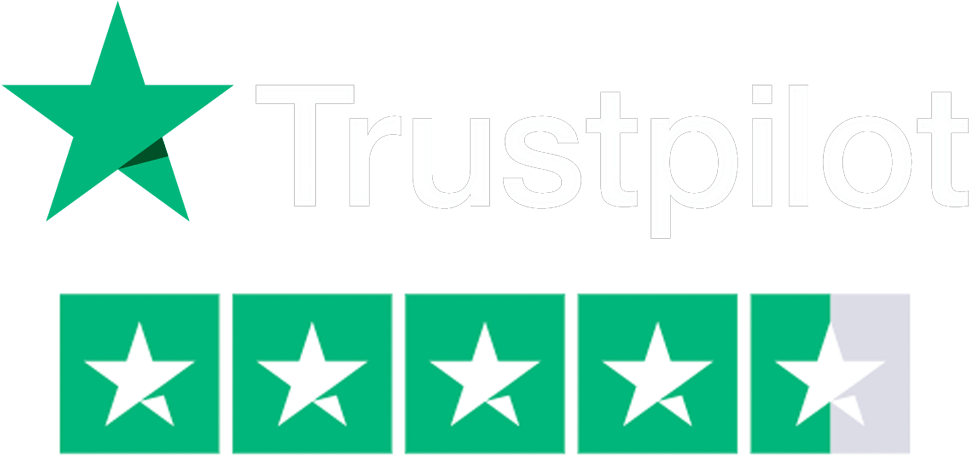Hey there, fellow code enthusiasts! If you’ve ever wondered which programming languages can help you earn the big bucks, you’re in the right place.
Today, we’re diving into the top 10 highest-paying programming languages in the US. Whether you’re looking to boost your career, switch paths, or just starting out, knowing which languages hold the most promise for a hefty paycheck can be a game-changer.
According to the Stackflow findings, languages like Clojure, Erlang, F#, and Lisp are among the top contenders. Professionals proficient in these languages are commanding median annual salaries ranging from about $95,000 to $100,000.
So, grab a cup of coffee, and let’s explore which programming skills are most valuable in today’s market. Ready to see if your favorite language made the list? Let’s get started!
Highest Paying Programming Languages in 2024
1. Solidity
Solidity has emerged as a unique and indispensable programming language, especially with the proliferation of smart contracts within the blockchain ecosystem. Developed specifically for Ethereum, Solidity operates on the Ethereum Virtual Machine (EVM), serving as the backbone for numerous Ethereum accounts and smart contracts. Despite its relatively recent introduction, Solidity has been witnessing a steady increase in popularity, driven by blockchain technology’s continuous growth and evolution.
Annual Salary:
According to CryptoJobsList, Solidity developers command a median annual salary of $150,000, with senior positions reaching up to $300,000.
Advantages:
- Tailored for Smart Contracts: Solidity is purpose-built for creating smart contracts, enabling developers to encode arbitrary state transitions and execute functions in a decentralized manner.
- Ease of Learning: With similarities to the syntax of C-family languages, Solidity offers a relatively smooth learning curve for developers familiar with mainstream programming languages.
- Versatility: Solidity finds applications in various domains, including but not limited to contracts for voting, crowdfunding, decentralized finance (DeFi), decentralized autonomous organizations (DAOs), and more. Its versatility makes it a cornerstone for decentralized applications (DApps) and blockchain-based solutions.
Examples of Companies:
- Consensys: A leading blockchain software technology company, Consensys utilizes Solidity in building decentralized applications and enterprise solutions.
- Chainlink: A decentralized oracle network, Chainlink relies on Solidity for the implementation of secure and reliable smart contracts to facilitate data connectivity between blockchain and external data sources.
2. Erlang
Erlang stands out as a programming language specifically crafted to address the challenges of building robust, concurrent, distributed, and fault-tolerant systems. Originally developed by Ericsson for telecommunications applications, Erlang has evolved into a versatile tool used across various industries where reliability, scalability, and fault tolerance are critical.
Annual Salary:
According to PayScale, the average annual salary for an Erlang developer in the United States is $117,000, with experienced professionals commanding salaries as high as $160,000.
Advantages:
- Fault-tolerant architecture: Erlang’s built-in support for fault tolerance enables systems to continue operating smoothly even in the face of failures, ensuring uninterrupted service for users.
- Concurrency management: With Erlang’s lightweight processes and efficient message passing, developers can easily manage concurrent operations, making it ideal for handling large volumes of simultaneous requests, such as those encountered in telecommunications.
- Distributed systems: Erlang’s design facilitates the development of distributed systems, enabling seamless communication and coordination among nodes, crucial for applications requiring scalability and resilience.
Examples of Companies:
- WhatsApp: Erlang powers WhatsApp’s messaging platform, allowing billions of users worldwide to exchange messages reliably and efficiently.
- Ericsson: A telecommunications giant, Ericsson utilizes Erlang extensively in the development of telecommunication infrastructure and services, leveraging its fault-tolerance and scalability features.
3. Clojure
Clojure, a dynamic and general-purpose programming language, offers a unique approach to programming with its emphasis on functional programming and immutable, persistent data structures. It seamlessly integrates scripting language ease with robust infrastructure, making it ideal for multithreaded programming and large data handling.
Annual Salary:
According to PayScale, the average annual salary for Clojure developers in the United States is $146,944, with variations based on experience, location, and specific job roles within companies.
Advantages:
- Functional Programming: Clojure embraces functional programming paradigms, allowing developers to write concise and expressive code that is easier to reason about and maintain.
- Immutable Data Structures: With immutable data structures, Clojure ensures thread safety and prevents unintended side effects, enhancing reliability and concurrency.
- Data Processing: Clojure excels in handling large amounts of data efficiently, making it a preferred choice for data mining, analytics, and artificial intelligence applications.
Examples of Companies:
- Funding Circle: A peer-to-peer lending marketplace, Funding Circle utilizes Clojure for its data-intensive operations, leveraging its efficient data processing capabilities to analyze and manage vast amounts of financial data.
- Puppet: A leader in IT automation software, Puppet employs Clojure for its infrastructure automation solutions, benefiting from its concurrency support and functional programming features to streamline and automate complex IT processes.
4. Scala
Scala, renowned for its scalability, stands out as a natural progression for Java developers, offering concise code and ease of use, particularly in web applications and data analysis.
Annual Salary:
According to Talent.com, the average annual salary for Scala developers in the United States is $148,000, with top earners reaching up to $200,000. With its financial incentive and job opportunities, Scala continues to be a language of interest for developers seeking career growth in cutting-edge tech domains.
Advantages:
- Concise Code: Scala’s concise syntax allows developers to express complex ideas with fewer lines of code compared to traditional languages, improving the readability and maintainability of the codebase.
- Ease of Use: With features borrowed from both object-oriented and functional programming paradigms, Scala provides developers with a flexible and expressive language to tackle diverse challenges, from web development to data processing.
- Integration with Third-Party Libraries: Scala seamlessly integrates with existing Java libraries, enabling developers to leverage a vast ecosystem of tools and frameworks for building robust and feature-rich applications.
Examples of Companies:
- LinkedIn: Scala powers the backend infrastructure of LinkedIn, handling millions of user interactions daily, demonstrating its capability to scale and perform in real-world, high-traffic environments.
- Twitter: Scala is at the core of Twitter’s real-time data processing pipeline, allowing the platform to analyze vast amounts of data and deliver timely updates to millions of users worldwide.
5. Go
Developed by Google, Go (or GoLang) is a programming language designed for efficient system programming, handling tasks such as big data processing, cloud computing, and web development with remarkable simplicity and speed. Its inception stemmed from the need for a language that could effectively manage the complex demands of modern computing environments while remaining accessible to developers.
Annual Salary:
According to Talent.com, the average annual pay for a GoLang Developer in the United States is $131,843, with annual salaries reaching as high as $199,000. The demand for Go developers continues to grow as companies recognize the language’s ability to deliver reliable, scalable solutions across a wide range of domains. As such, Go presents promising career opportunities with competitive salaries and potential for career growth.
Advantages:
- Efficiency: Go boasts a robust concurrency model and efficient garbage collection, enabling it to handle large-scale tasks with minimal resource consumption. This efficiency makes it particularly well-suited for cloud computing environments where scalability and performance are paramount.
- Simplicity: With a syntax influenced by C, Go offers a clean and minimalist language design that prioritizes readability and ease of use. Its straightforward syntax reduces the learning curve for developers transitioning from other programming languages, facilitating faster adoption and productivity.
- Versatility: Despite its simplicity, Go is a versatile language capable of powering a wide range of applications. From web servers and microservices to command-line tools and distributed systems, Go’s flexibility allows it to thrive in diverse development environments.
Examples of Companies:
- Google: As the birthplace of Go, Google has integrated the language extensively into its infrastructure, using it to power critical components of services like YouTube, Gmail, and Google Cloud Platform.
- Dropbox: A pioneer in cloud storage and file synchronization, Dropbox relies on Go to develop scalable backend services that handle millions of user requests daily. Go’s efficiency and concurrency features align with Dropbox’s need for high-performance, distributed systems.
6. C#
C# stands out as a versatile programming language, renowned for its proficiency in game development, virtual reality, and application creation. Developed by Microsoft, C# combines the best features of C and C++, making it a preferred choice for developers seeking a balance between power and simplicity.
Annual Salary:
According to Salary.com, C# developers in the United States command an average annual salary of $113,715, with top earners exceeding $181,000. This lucrative compensation reflects the high demand for C# expertise in lucrative industries such as gaming and application development.
Advantages:
- Game Development Excellence: C# is widely acclaimed for its prowess in game development. With robust frameworks like Unity, developers harness the language’s capabilities to create immersive gaming experiences across various platforms.
- Versatility in Application Creation: From desktop to mobile applications, C# shines in crafting user-friendly and feature-rich software. Its integration with the .NET framework streamlines development, enabling developers to create efficient and scalable applications.
- Leadership in Virtual Reality: As virtual reality (VR) gains momentum, C# remains at the forefront of VR development. Its compatibility with platforms like Oculus Rift and HTC Vive empowers developers to build cutting-edge VR experiences.
Examples of Companies:
- Microsoft: As the creator of C#, Microsoft utilizes the language extensively in its software development projects, including Windows applications and gaming platforms.
- Unity Technologies: Unity, a leading real-time development platform, relies heavily on C# for game development. Its user-friendly interface and robust features make it a preferred choice among game developers worldwide.
7. Perl
Perl, a dynamic and versatile programming language, occupies a niche yet highly profitable space in the programming landscape. Renowned for its flexibility and robustness, Perl finds extensive use in various domains, particularly in system administration, network programming, and graphical user interface development.
Annual Salary:
Perl developers are highly sought after and command competitive salaries in the job market. According to Talent.com, the average annual salary for Perl developers stands at $114,161, with experienced professionals earning as much as $171,500.
Advantages:
- Flexibility: Perl’s dynamic nature allows developers to adapt quickly to changing requirements, making it an ideal choice for quick prototyping and iterative development.
- Versatility: Whether it’s front-end development, back-end server scripting, or system administration tasks, Perl offers a wide range of applications, making it a go-to language for various programming needs.
- Rapid Development: Perl’s expressive syntax and extensive library support enable developers to write concise and efficient code, speeding up the development process significantly.
- Robustness: With built-in features for error handling and exception management, Perl ensures stable and reliable software solutions, crucial for mission-critical systems.
Examples of Companies:
- Booking.com: As a prominent player in the online travel industry, Booking.com relies heavily on Perl for its backend infrastructure and system administration tasks. From managing large-scale databases to automating server operations, Perl plays a vital role in ensuring seamless operations at Booking.com.
- Bloomberg: In the world of finance, accuracy and speed are paramount. Bloomberg, a global leader in financial software and data services, leverages Perl’s rapid development capabilities to prototype and deploy critical financial applications swiftly. From parsing market data to generating complex reports, Perl powers various mission-critical systems at Bloomberg.
8. Ruby
Ruby, an open-source scripting language, is particularly renowned for its usage in web development, where it powers numerous dynamic and interactive websites. Its ease of use, concise syntax, and support for multiple programming paradigms make it a popular choice among developers.
Annual Salary:
According to Talent.com, the average salary for a Ruby on Rails developer in the USA is $120,000 per year, with top salaries reaching up to $162,500 annually. This lucrative compensation reflects the high demand for Ruby’s expertise in the job market, making it an attractive option for developers seeking rewarding career opportunities in web development.
Advantages:
- Web Development: Ruby is widely used in web development, especially with the Ruby on Rails framework, which simplifies and accelerates the creation of web applications.
- Ease of Use: With its clear and readable syntax, Ruby is beginner-friendly and allows developers to write code quickly and efficiently.
- Multiple Programming Models: Ruby supports multiple programming paradigms, including object-oriented, functional, and imperative programming, providing developers with flexibility and versatility in their coding approach.
Examples of Companies:
- Airbnb: Airbnb, the popular online marketplace for lodging and tourism experiences, relies heavily on Ruby on Rails for its platform development.
- Shopify: Shopify, a leading e-commerce platform, utilizes Ruby on Rails to power its backend infrastructure and provide a seamless shopping experience for millions of users worldwide.
9. Java
Java, renowned for its security and platform independence, plays a vital role in various sectors like e-commerce, finance, and app development. With its high-level, object-oriented nature and robust platform independence, it serves as a cornerstone in DevOps, big data processing, and mobile chatbot development.
Annual Salary:
According to Salary.com, the average annual pay for a Java Developer in the United States is $107,500, with salaries ranging from $90,000 to $125,000 depending on experience and location. Java developers in senior positions can command even higher salaries, with some earning upwards of $150,000 per year. With the continuous demand for Java expertise across various industries, it remains a lucrative skill set for developers seeking high-paying roles and career growth opportunities.
Advantages:
- Highly Secure: Security is paramount in sectors dealing with sensitive data, such as finance and e-commerce. Java’s built-in security features, including its robust authentication and encryption capabilities, make it a preferred choice for developing secure applications. With Java, developers can implement stringent security measures to protect against cyber threats, ensuring the integrity and confidentiality of sensitive information.
- Platform Independence: One of Java’s defining features is its platform independence, achieved through the Java Virtual Machine (JVM). Java code can run on any device or platform that supports the JVM, providing unparalleled flexibility and compatibility. This cross-platform compatibility allows developers to write code once and deploy it anywhere, streamlining the development process and reducing time-to-market for software products.
- Enhanced Productivity: Java’s extensive ecosystem of libraries, frameworks, and tools empowers developers to build complex applications efficiently. The availability of comprehensive APIs simplifies common tasks, such as networking, database access, and user interface development, accelerating the development cycle. Moreover, Java’s object-oriented nature promotes code reusability and maintainability, fostering a modular and scalable approach to software development.
Examples of Companies:
- Amazon: As one of the world’s largest e-commerce companies, Amazon relies heavily on Java for its backend services, including order processing, inventory management, and customer relationship management. Java’s scalability and reliability align with Amazon’s need for robust and high-performance systems to support its vast array of products and services.
- PayPal: PayPal, a leading online payment platform, leverages Java for its core payment processing infrastructure, ensuring secure and reliable transactions for millions of users worldwide. Java’s proven track record in handling large-scale, mission-critical applications makes it an ideal choice for PayPal’s payment processing needs, where reliability and scalability are paramount.
10. Rust
Rust stands out in the programming landscape for its exceptional balance between performance, safety, and concurrency. This language has garnered attention for its ability to handle complex systems with efficiency and reliability, making it increasingly popular across various industries.
Annual Salary:
According to Salary.com, Rust Developers in the United States can expect competitive salaries ranging from $74,000 to $134,500 annually, with variations based on factors such as skill level, location, and years of experience. As Rust continues to gain momentum in the software development community, developers proficient in the language can anticipate lucrative career opportunities with companies at the forefront of innovation.
Advantages:
- Safety: One of Rust’s standout features is its emphasis on memory safety without compromising performance. Unlike many other languages where developers often grapple with memory-related errors like null pointer dereferences or buffer overflows, Rust’s ownership system ensures that memory-related bugs are caught at compile time rather than runtime.
- Concurrency: Rust offers robust support for concurrent programming, allowing developers to write code that efficiently utilizes modern multicore processors. With features like ownership and borrowing, Rust’s concurrency model ensures thread safety without the need for complex locking mechanisms or the risk of data races.
- Versatility: Beyond its safety and concurrency features, Rust’s versatility is evident in its application across a wide range of domains. From web3/blockchain projects leveraging Rust’s performance and security for building decentralized applications (dApps) to virtual reality (VR) environments where Rust’s efficient memory management is crucial for delivering immersive experiences, the language has found its way into cutting-edge technologies.
Examples of Companies:
- Mozilla: As the organization behind the Firefox web browser and various other open-source initiatives, Mozilla has been a strong advocate for Rust since its inception. Rust’s safety features make it an ideal choice for critical components of web infrastructure, where reliability and security are paramount.
- Discord: Discord, a popular platform for real-time communication and community engagement, relies on Rust for its backend infrastructure. Rust’s memory safety and concurrency features enable Discord to deliver a seamless user experience while ensuring reliability and responsiveness across its platform.
How to Choose the Right Programming Language
Selecting the appropriate programming language for your career objectives is vital for achieving financial success. Here are some key considerations to bear in mind when making your choice:
- Personal Interest and Passion
Opt for a programming language that resonates with your interests and passions. Enjoying the language you work with will enhance your coding experience and make your journey more rewarding.
- Job Market Demand
Take into account the current and projected job market demand for a specific programming language. Opt for a language with a promising job market outlook to ensure a steady flow of career opportunities.
- Industry Focus
Examine the industries and sectors where a programming language is extensively utilized. Choose a language that aligns with your preferred industry to enhance your prospects of securing lucrative job positions.
- Learning Curve
Assess the learning curve of a programming language based on your current skill level and available learning resources. Select a language that you find manageable to learn and master.
- Future Growth Prospects
Evaluate the future growth potential of a programming language. Look out for emerging trends, technologies, and frameworks associated with the language that could lead to new career opportunities.
Conclusion
The pay scale for programming languages can vary based on factors like demand, complexity, industry usage, and the number of skilled developers. Industries such as finance, healthcare, AI, and blockchain tend to offer higher salaries due to the complexity of work and skill shortage.
Languages like Rust, Solidity, and Go are gaining popularity for their efficiency and adaptability in software development. As the demand for developers proficient in these languages increases, so do their salaries. Your success, job satisfaction, and retention as a programmer rely on focusing on your strengths and interests.
We at ellow.io provide senior, high-performing developers proficient in Java, C#, Scala, Rust, Go, Clojure, and Solidity, all vetted and coachable.









